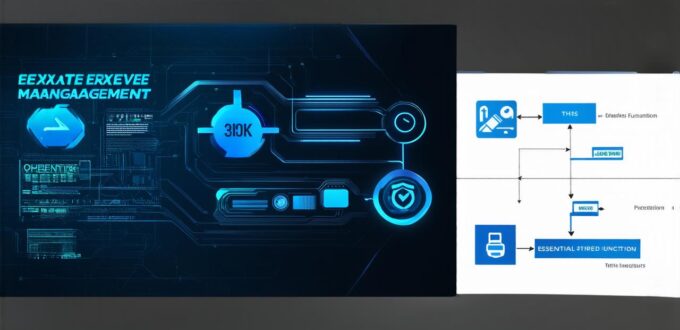System software is an essential component of any computer system. It enables users to perform tasks and interact with their devices effectively. As a software developer, it is crucial to understand the purpose of system software to create applications that run smoothly and efficiently on different operating systems.
System Software Enables Interaction with Devices
One of the primary functions of system software is to enable users to interact with their devices. System software such as device drivers, firmware, and utility programs provide an interface between the hardware components and the operating system, allowing users to connect and control their devices.
System Software Enables Multitasking
Another important function of system software is to enable multitasking. Multitasking allows users to run multiple applications simultaneously, which increases productivity and efficiency. The operating system manages multitasking by allocating resources to each application as needed, ensuring that no single application hogs all the resources and slows down the system.
System Software Provides Security Features
Security is a critical aspect of software development, and system software plays an essential role in ensuring the security of computer systems. System software such as antivirus programs, firewalls, and encryption tools provide protection against malware attacks, phishing attempts, and other security threats. These features help prevent data breaches and ensure that sensitive information remains secure.

System Software Facilitates Collaboration
Collaboration is essential in software development, and system software facilitates collaboration by enabling users to share files and collaborate on projects in real-time. Examples of system software that facilitate collaboration include file sharing services such as Dropbox, cloud storage services such as Google Drive, and project management tools such as Trello and Asana.
System Software Enables Compatibility
Compatibility is a crucial aspect of software development, and system software plays an essential role in ensuring compatibility between different applications and operating systems. Developers need to ensure that their applications are compatible with various operating systems to reach a broader audience. For instance, an application designed for Windows may not run smoothly on macOS or Linux, making it less accessible to users. To address this issue, developers use different techniques such as platform-specific programming or cross-platform development tools.
Impact of System Software on Software Development
System software plays a vital role in software development. Developers must ensure that their applications are compatible with various operating systems to reach a broader audience. For instance, an application designed for Windows may not run smoothly on macOS or Linux, making it less accessible to users. To address this issue, developers use different techniques such as platform-specific programming or cross-platform development tools. Platform-specific programming involves creating separate versions of the application for each operating system, while cross-platform development tools enable developers to create applications that run on multiple platforms with minimal code changes.
Case Study: Microsoft Windows
Microsoft Windows is one of the most widely used operating systems worldwide, with millions of users relying on it daily. The operating system provides a wide range of features and services that make it an attractive choice for both personal and business use. For instance, Windows Explorer allows users to navigate their devices’ file systems, while Windows Defender provides antivirus protection to prevent malware attacks. Moreover, Windows supports a vast array of applications, making it easy for users to perform various tasks such as word processing, graphic design, and video editing. However, the operating system is not without its flaws. For example, Windows has been criticized for its slow performance and high resource requirements, which can cause crashes and system freezes.
Personal Experience: Using Linux
As a software developer, I have used both Windows and Linux operating systems extensively. While Windows provides a wide range of features and services that make it an attractive choice for many users, Linux offers more flexibility and customization options. Linux is open-source, which means that the source code is freely available for anyone to view and modify. This feature enables developers to customize the operating system to their specific needs and preferences.
Summary
System software plays a vital role in software development, enabling users to interact with their devices, facilitate collaboration, ensure compatibility, and provide security features. Developers must have a good understanding of system software’s purpose and importance to create applications that are compatible with various operating systems and hardware configurations. Understanding the importance of system software can help developers create more efficient, secure, and accessible applications that meet the needs of their users.
